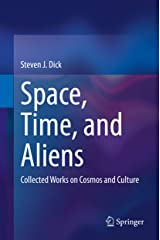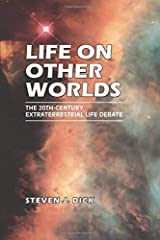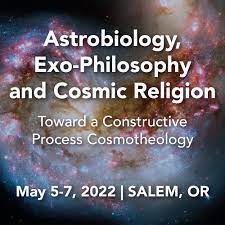From RE Slater to Everyone 02:03 PM
Thank you Andrew. And to Stephen Dick too in his efforts to explain the universe we live in. Without Dick's work Whiteheadian process perhaps might not have as deep a response as it can. It further underlines the clarity of insight by ANW so many years ago and it's continuing relevance to society today.
From Jay McDaniel to Everyone 02:07 PM
Andrew, could you say a little more about God being metaphysically necessary? I'm wondering if it might be more accurate to say that, for Whitehead, God is cosmologically and empirically necessary. After all, God was not included in his categories of existence, even as, for empirical reasons, he felt it important to recognize a principle or order and novelty. Also, I wonder what you do with the fact that Whitehead says, among many other things, that the world creates God even as God creates the world. Does this not give meaning to Professor Dick's idea that, in some way, God is a "product" of the universe?
From Lynn De Jonghe to Everyone 02:08 PM
Leemon McHenry, The Event Universe, Edinburgh, 2020
From Daryl Anderson to Everyone 02:09 PM
found it AI page 237 "§ 16. The Flux of Energy. An occasion of experience which includes a human mentality is an extreme instance, at one end of the scale, of those happenings which constitute nature."
From Daryl Anderson to Everyone 02:15 PM
To further challenge notions of "life" or sentience, consider the work of physicist Attila Grandpierre viz (a) Helios - the sentience of the Sun, and also the (b) "fundamental biological nature of the universe". http://www.grandpierre.hu/site/english/ he has a chapter in Andrew's "Process Cosmology"
From Bob Mesle to Everyone 02:17 PM
Andrew, re possibilities. I still do not find it helpful to postulate a platonic realm of eternal objects. It seems better to me to say that a possibility is anything that can happen—can be actualized—given the past actual world. If the actual past is infinite, then an infinite realm of possibilities seems likely.
From Lynn De Jonghe to Everyone 02:19 PM
Yes Bob, I agree. Further, once an event occurs that constrains the remaining possibilities, even as it creates new possibilities.
From Jay McDaniel to Everyone 02:21 PM
Whitehead uses the term transcendence in a unique way: actual entities transcend one another. They have their own autonomy. But he also speaks of God "transcending" the world even as, so he says, the world also "transcends" God. They have their respective autonomy. For Whitehead, the quality of God's autonomy is quite different from that of, say, a quantum event in the depths of an atom. Andrew wants to argue that finite entities are contingent in a way that God is not - but in principle you could say all of this and add that God, too, is contingent in that God could not exist. (Andrew rejects his.)
From Bob Mesle to Everyone 02:21 PM
Lynn, yes, I agree. The number of possibilities, even if infinite, may be continually enlarged.
From Lynn De Jonghe to Everyone 02:25 PM
On communicating beauty, one thinks of the symbols that Carl Sagan helped to design for the SETI voyage to outer space.
From Al Gephart to Everyone 02:27 PM
I wrestle with how each of these perspectives accounts for the reality of love, that there is an energy deep within humans and even the other-than human that motivate actions whick may threaten its own existence. Isn’t the naturalistic impulse always toward continual existence?
From Prof J Paul to Everyone 02:29 PM
Yes Meta-Aesthetics
From Daryl Anderson to Everyone 02:30 PM
trees providing "mutual aid" to one another... manifesting moralities without language ?
From Michael Witmer to Everyone 02:32 PM
The notion of World loyalty seems apt here.
From David Bartosch to Everyone 02:32 PM
Dark Forest Theory
From Prof J Paul to Everyone 02:35 PM
Sacred Geometrics ..?






































.jpg)















.jpg)
.jpg)
.jpg)
.jpg)
.jpg)
.jpg)



.jpg)
.jpg)
.jpg)
.jpg)


.jpg)
.jpg)
.jpg)
.jpg)
.jpg)
.jpg)
.jpg)
.jpg)
.jpg)

.jpg)
.jpg)
.jpg)
.jpg)
.jpg)
.jpg)
.jpg)
.jpg)
.jpg)
.jpg)
.jpg)
.jpg)
.jpg)
.jpg)
.jpg)
